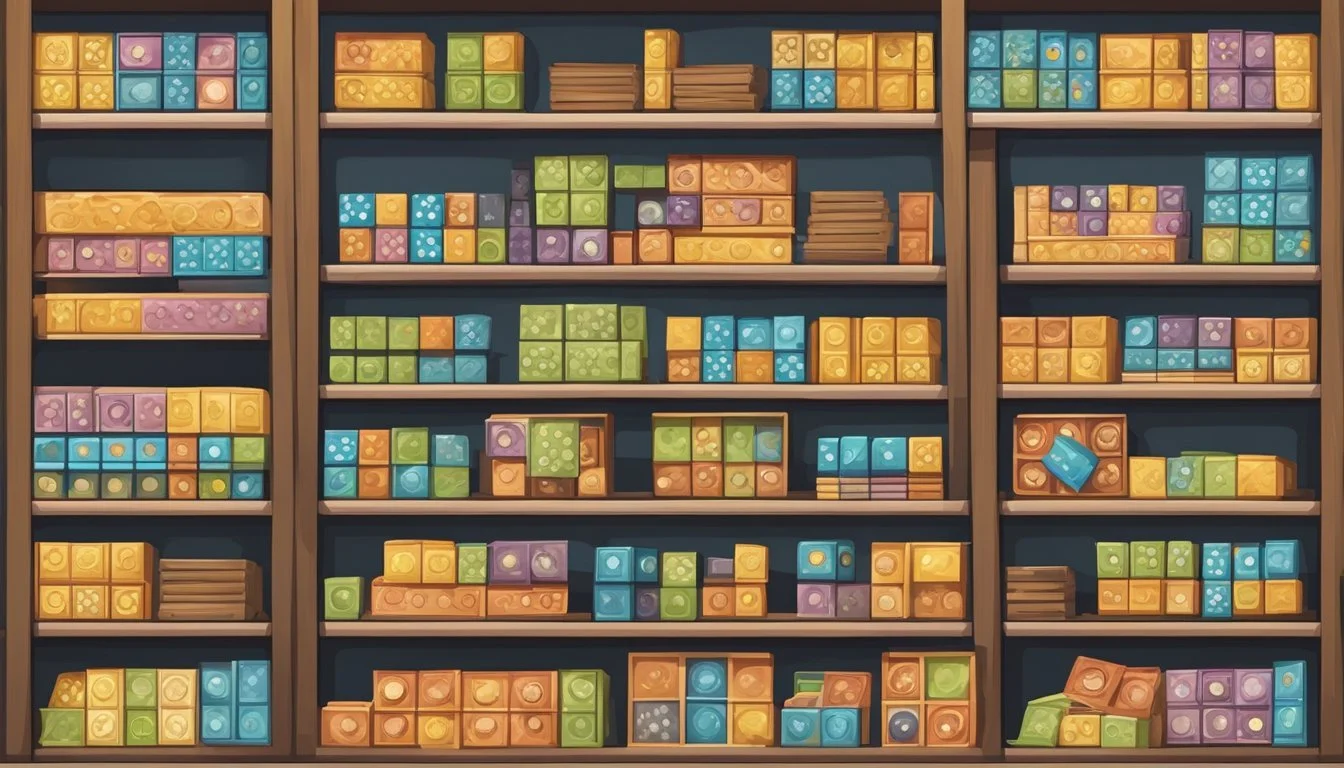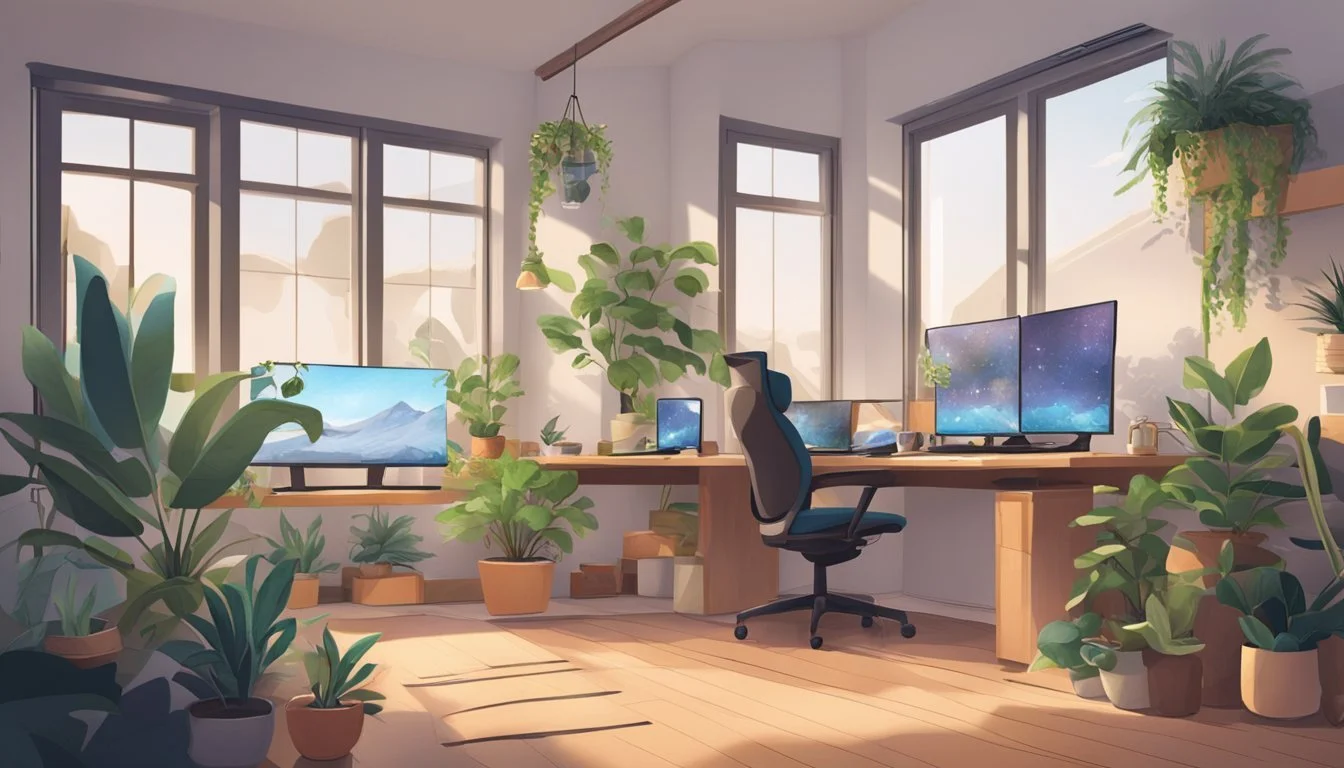Therapeutic Gaming for Obsessive Compulsive Disorder Management
Games designed to simulate or address obsessive-compulsive disorder (OCD) are gaining traction as innovative tools for awareness and management of this mental health condition. These games range from simple color-sorting puzzles to immersive virtual reality experiences that depict the inner workings of an OCD-affected mind. OCD games aim to provide insight into the challenges faced by individuals with obsessive-compulsive disorder while offering potential therapeutic benefits.
Some OCD games focus on simulating the intrusive thoughts and compulsive behaviors characteristic of the disorder. For example, one game tasks players with preventing negative thought bubbles from crashing into the sides of the screen. Other games take a more educational approach, teaching players about color theory and gradients through sorting exercises that appeal to OCD tendencies. Virtual reality has also entered this space, with games like Dichotomy offering rhythm-based gameplay set in a celestial representation of the mind, featuring levels themed around different types of OCD.
Understanding OCD
Obsessive-Compulsive Disorder (OCD) is a complex mental health condition characterized by persistent intrusive thoughts and repetitive behaviors. It affects millions worldwide, significantly impacting daily life and functioning.
Defining Obsessive-Compulsive Disorder
OCD is a chronic mental illness marked by unwanted, recurring thoughts (obsessions) and ritualistic behaviors (compulsions). These obsessions often revolve around themes such as contamination, harm, or symmetry. Individuals with OCD feel compelled to perform specific actions to alleviate anxiety caused by their intrusive thoughts.
Common obsessions include fear of germs or contamination, worry about losing control, and need for order or symmetry. Compulsions may involve excessive hand washing, checking locks repeatedly, or arranging objects in a particular way.
Symptoms and Impacts
OCD symptoms can vary in intensity and theme. Intrusive thoughts may lead to severe anxiety, fear, and in some cases, suicidal ideation. Compulsive behaviors often interfere with work, relationships, and daily activities.
Physical symptoms may include:
Muscle tension
Increased heart rate
Sweating
Trembling
Psychological impacts include:
Persistent worry
Difficulty concentrating
Sleep disturbances
Social isolation
OCD can significantly reduce quality of life, affecting personal relationships, academic performance, and career advancement.
OCD Management Overview
Effective OCD management typically involves a combination of therapeutic interventions and coping strategies. Cognitive-Behavioral Therapy (CBT), particularly Exposure and Response Prevention (ERP), is considered the gold standard treatment for OCD.
Other management approaches include:
Medication (e.g., SSRIs)
Mindfulness techniques
Support groups
Lifestyle changes (regular exercise, stress reduction)
Digital tools, including OCD-focused apps and games, can complement traditional treatments by providing practice in anxiety management and cognitive restructuring.
Professional help is crucial for developing personalized treatment plans and learning effective coping mechanisms to manage OCD symptoms long-term.
OCD and Gaming
Video games intersect with obsessive-compulsive disorder in complex ways, offering both potential benefits and risks for individuals with OCD. The interactive nature of gaming can impact symptoms, coping strategies, and overall well-being.
The Role of Games in OCD
Video games often feature repetitive actions and reward systems that can mirror OCD compulsions. Some players find comfort in the structured environments and predictable outcomes of games. For others, gaming may exacerbate existing OCD tendencies.
Certain game mechanics, like collecting items or achieving perfect scores, can trigger compulsive behaviors. Players might feel compelled to restart levels repeatedly or perform in-game rituals. These actions can provide temporary relief from anxiety but may reinforce OCD patterns.
Games can also serve as a distraction from intrusive thoughts. The immersive nature of gaming can offer a mental escape, allowing individuals to focus on virtual tasks rather than OCD symptoms.
Potential Benefits and Risks
Gaming can have positive effects on OCD management. Some games provide a safe space to practice exposure therapy techniques. Puzzle and strategy games may improve cognitive flexibility, potentially helping to break rigid thought patterns associated with OCD.
Video games can also foster social connections through online multiplayer modes, reducing feelings of isolation common in OCD. The sense of accomplishment from overcoming in-game challenges may boost self-esteem and confidence.
However, excessive gaming can lead to addiction-like behaviors, worsening OCD symptoms. Time spent gaming might interfere with other important activities or treatment plans. Some individuals may use games as a form of avoidance, neglecting to address underlying OCD issues.
Game Recommendations
Certain types of games may be more suitable for individuals with OCD. Puzzle games like "Portal" or "Baba Is You" can engage the mind without triggering compulsions. Strategy games such as "Civilization" or "Cities: Skylines" offer complex decision-making opportunities that may help challenge rigid thinking.
Indie games on platforms like Itch.io often explore mental health themes, providing relatable experiences. "Celeste" tackles anxiety and self-doubt, while "Hellblade: Senua's Sacrifice" offers insights into mental illness.
It's important to choose games that don't exacerbate OCD symptoms. Avoiding titles with excessive violence, perfectionistic goals, or addictive mechanics may be beneficial. Ultimately, the impact of gaming on OCD varies by individual, and moderation is key.
Therapeutic Gaming Strategies
Gaming can be a powerful tool for managing OCD symptoms. Certain games offer opportunities to practice coping skills and face fears in a controlled environment.
Games as Coping Mechanisms
Strategy games like Settlers of Catan can help individuals with OCD improve decision-making skills. Players must weigh options and make calculated choices, fostering cognitive flexibility.
Engaging storylines in games like the Elder Scrolls series can provide a mental escape. These immersive experiences allow players to focus on the plot, temporarily shifting attention away from intrusive thoughts.
Resource management games teach players to allocate limited assets efficiently. This skill can translate to real-life prioritization of time and energy when managing OCD symptoms.
Puzzle games challenge the mind and promote problem-solving abilities. These cognitive exercises can help build resilience against obsessive thinking patterns.
Exposure Therapy Through Games
Virtual reality games offer a safe space to confront OCD triggers. Players can gradually face fear-inducing scenarios at their own pace, building confidence over time.
Simulation games allow individuals to practice routine tasks without real-world consequences. This can be particularly helpful for those with contamination fears or checking compulsions.
Multiplayer games provide opportunities for social interaction. Players can practice coping with uncertainty and imperfect outcomes in a low-stakes environment.
Games with customizable difficulty levels enable users to adjust exposure intensity. This feature allows for a personalized approach to facing anxiety-provoking situations.
Developing Healthy Gaming Habits
Establishing effective gaming habits is crucial for managing OCD symptoms and maintaining overall mental well-being. By implementing structured approaches and mindfulness techniques, players can create a balanced and enjoyable gaming experience.
Setting Boundaries and Goals
Setting clear boundaries and goals helps create a healthier relationship with gaming. Establish specific time limits for gaming sessions, such as 1-2 hours per day. Use timers or apps to track playtime and enforce breaks. Create a balanced schedule that includes other activities like exercise, socializing, and hobbies.
Set achievable in-game goals to provide a sense of accomplishment without excessive grinding. Prioritize games that align with personal interests and values. Avoid games that trigger compulsive behaviors or excessive anxiety.
Regularly assess gaming habits and adjust boundaries as needed. Communicate goals with friends and family for support and accountability.
Mindfulness in Gaming
Practicing mindfulness techniques can increase awareness of gaming behaviors and reduce OCD symptoms. Before starting a gaming session, take a few deep breaths and set an intention for the play period. During gameplay, pay attention to physical sensations and emotions.
Notice any urges to engage in compulsive behaviors without judgment. If compulsions arise, try delaying the action for a few minutes. Gradually increase the delay time to build tolerance.
Use grounding techniques like the 5-4-3-2-1 method to stay present. Take regular breaks to stretch, hydrate, and reset focus. After gaming, reflect on the experience and any challenges faced.
Consider incorporating meditation apps or guided relaxation exercises into gaming routines. These practices can help manage stress and anxiety associated with OCD and gaming.
Support and Resources
Accessing appropriate support and resources is crucial for managing OCD effectively. Professional help and supportive gaming communities can provide valuable assistance.
Finding Professional Help
Therapy is a cornerstone of OCD treatment. Cognitive Behavioral Therapy (CBT) and Exposure and Response Prevention (ERP) are evidence-based approaches. These methods help individuals challenge intrusive thoughts and reduce compulsive behaviors.
Mental health professionals specializing in OCD can offer tailored treatment plans. They may recommend a combination of therapy and medication when appropriate.
Online directories from reputable organizations can help locate qualified therapists. The International OCD Foundation provides a searchable database of OCD specialists.
Teletherapy options have expanded access to professional help, especially for those in remote areas or with mobility limitations.
Safe Spaces in Gaming Communities
Gaming communities can offer comfort and understanding for individuals with OCD. Many online platforms host forums and chat rooms dedicated to mental health discussions.
These spaces allow people to share experiences, coping strategies, and support each other. Moderated communities help maintain a safe environment free from triggering content.
Some gaming groups organize events focused on mental health awareness. These initiatives promote understanding and reduce stigma surrounding OCD and other conditions.
Discord servers and subreddits often have channels specifically for mental health support. Users can find like-minded individuals and form supportive connections.
It's important to remember that while peer support is valuable, it doesn't replace professional help for managing OCD symptoms.


